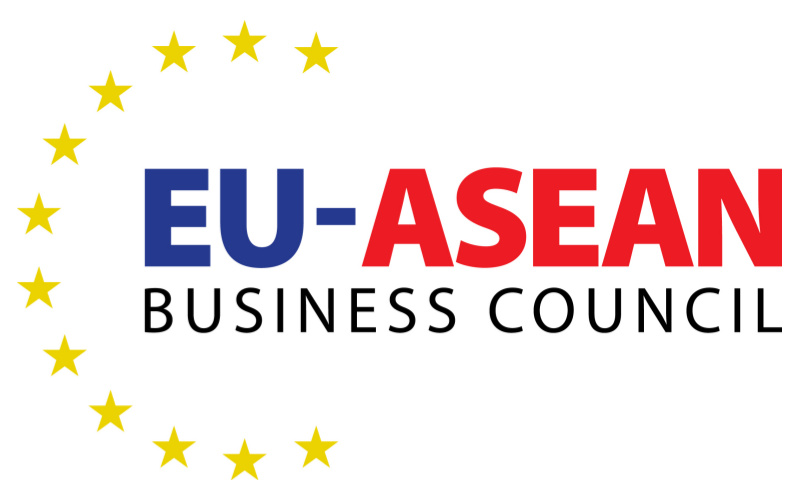Makes Recommendations Aimed at Improving ASEAN’s Attractiveness and Supporting Sustainable Economic Development
SINGAPORE – Media OutReach – 26 March 2020 – Supporting Vietnam’s Chairmanship Theme of a Cohesive and Responsive ASEAN, the EU-ASEAN Business Council (EU-ABC) has today published two papers to enhance ASEAN’s competitiveness and attractiveness for increased trade and investment.
The EU-ABC is issuing these reports at the time of the 6th ASEAN Finance Ministers and Central Bank Governors Meeting in Vietnam, to encourage concrete actions to help ASEAN improve its resilience to economic shock waves, and achieve its objectives for trade and investment.
“Financing ASEAN’s Future” explores ways in which sustainable finance can support ASEAN’s ability to meet its Sustainable Development Goals. “ASEAN Competitiveness and Trade Facilitation” discusses how intra-ASEAN trade is crucial in promoting a cohesive and integrated region and better positioning the region as a trade and investment destination going forward.
Commenting on the launch of the papers, Chris Humphrey Executive Director of the EU-ABC, said: “The recommendations in the reports are especially timely given the current challenges to the global economy. ASEAN has taken concrete measures towards its’ own economic integration agenda. But more needs to be done to strengthen ASEAN’s position in global supply chains. At times like these, ASEAN can act collectively to advance development for the benefit of its talented citizens, and improve competitiveness. We hope that our publications will serve as food for thought among ASEAN leaders, and help bring the very best efforts of European businesses to facilitate long-term, sustainable investment in the region, and support the vision of ASEAN leaders of a more secure, prosperous and inclusive future.”
EU-ABC Chairman Donald Kanak said : “Over the past decade GDP growth and FDI have been strong. For the region to maintain its strong position in the global economy, and achieve sustainable and equitable economic development, it must attract quality investment, technology and skills and more actively remove non-tariff barriers to trade and investment. This is key to higher value-added jobs and avoiding the middle-income trap, an issue with which emerging economies in the region are grappling. The EU-ABC hopes that these publications will not only support, but advance ASEAN’s long term economic and social agenda.”
Tony Cripps, CEO, HSBC Singapore commented: “The changes to our environment are very real, very immediate and affecting all of us. This is particularly the case in Southeast Asia. The path to change is not easy and banks have a very clear role to play. Encouragingly, investor appetite for green and sustainable financing products is growing. However, the market is still sub-scale, held back by a lack of investible projects. Injecting new urgency into the actions of governments and businesses across ASEAN is now a priority. Failure to act now could severely dent the region’s growth opportunity”
The EU-ABC continues to encourage the removal of trade and investment barriers to achieve the full benefits of ASEAN integration and promote growth of key sectors such as healthcare, the Digital Economy and quality financial services.
In summary the two papers from the EU-ABC are:
1) Financing ASEAN’s Future: Developing Cohesive & Responsive Policies for Sustainable Finance: Rising costs associated with climate change continue to impact populations and GDP across ASEAN. The financial sector specifically can play a critical role in directing investments to help cope with these environmental and socio-economic challenges.
The Council encourages shifting funds towards investments that meet the socio-economic and environmental needs of emerging economies while not locking in carbon emissions for decades. Measures to support this key sector are put forward in the paper.
2) ASEAN Competitiveness & Trade Facilitation: A Time For Action: There is a growing urgency for ASEAN to realise the vision of the AEC by removing NTBs and trading more with itself. This paper puts forward several recommendations aimed at advancing the AEC faster, and supporting the developments of MSMEs whilst boosting ASEAN competitiveness.
About the EU-ASEAN Business Council
The EU-ASEAN Business Council (EU-ABC) is the primary and sole voice for European business covering all of the ASEAN region.
It is recognised by the European Commission and the ASEAN Secretariat and is an accredited entity under Annex 2 of the ASEAN Charter. Independent of both bodies, the Council has been established to help promote the interests of European businesses operating within ASEAN and to advocate for changes in policies and regulations which would help promote trade and investment between Europe and the ASEAN region.
The Council works on a sectorial and cross-industry basis to help improve the investment and trading conditions for European Businesses in the ASEAN region through influencing policy and decision makers throughout the region and in the EU, as well as acting as a platform for the exchange of information and ideas amongst its members and regional players within the ASEAN region.
The EU-ABC’s membership consists of large European Multi-National Corporations and the nine European Chambers of Commerce from around Southeast Asia. The EU-ABC represents a diverse range of European industries cutting across almost every commercial sphere from car manufacturing through to financial services and including Fast Moving Consumer Goods and high-end electronics and communications. Our members all have a common interest in enhancing trade, commerce and investment between Europe and ASEAN.
The Executive Director of the EU-ASEAN Business Council is Mr Chris Humphrey, and its Chairman is Mr Donald Kanak. The Council is led by an elected Board consisting of corporate leaders representing a range of important industry sectors and representatives of the European Chambers of Commerce.


















